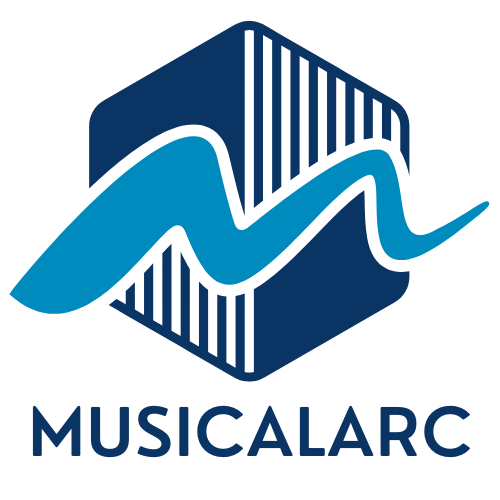Navigating the wild world of career development can feel like trying to find a clean restroom at a music festival—overwhelming and a bit chaotic. Yet, having a solid career development plan is like packing the ultimate survival kit. It’s essential for anyone looking to climb the corporate ladder or pivot to a new career path.
Table of Contents
ToggleUnderstanding Career Development Plans
Career development plans provide a roadmap for professional growth. They guide individuals through their career paths, ensuring progress towards goals.
Importance of a Career Development Plan
Career development plans enhance job satisfaction. They align personal ambitions with organizational goals, fostering motivation. When individuals understand how their roles fit into the bigger picture, engagement increases. Employees with a clear development plan demonstrate higher productivity. Moreover, these plans facilitate skill acquisition, preparing individuals for new challenges. Companies benefit from retaining skilled workers, reducing turnover costs. Structured plans also help identify potential leaders within the organization, ensuring future success.
Key Components of an Effective Plan
Effective career development plans include several key components. First, self-assessment helps individuals identify strengths and areas for improvement. Next, setting short and long-term goals creates a clear direction. Actionable steps outline how to achieve these goals. Regular evaluations ensure progress and allow for necessary adjustments. Networking opportunities expand professional connections, opening doors to new possibilities. Lastly, mentorship provides guidance and support, encouraging growth throughout one’s career. Integrating these aspects results in a comprehensive plan tailored to individual needs and aspirations.
Types of Career Development Plans
Career development plans vary based on individual needs and organizational objectives. Understanding these types aids in selecting the most suitable approach.
Individual Career Development Plan Examples
Individual career development plans focus on personal aspirations and skills. They often incorporate assessments that identify strengths and weaknesses. For example, a marketing professional may outline goals to master digital tools or lead projects. Each plan includes actionable steps, such as attending workshops or pursuing certifications. Regular progress evaluations ensure alignment with goals and provide motivation. Mentorship can also play a crucial role in supporting individuals as they navigate their paths.
Organizational Career Development Plans
Organizational career development plans align employee growth with company objectives. These plans highlight skill gaps and create pathways for advancement within the organization. For instance, a large corporation may establish training programs tailored for leadership roles. Each strategy might involve collaboration across departments to foster a culture of learning. Evaluating employee performance helps track progress and adapt programs. Mentoring and networking initiatives strengthen connections between different levels of staff.
How to Create a Career Development Plan
Creating a career development plan involves thoughtful organization and clear objectives. It entails identifying personal career goals and aligning them with actionable strategies.
Steps to Develop Your Plan
- Conduct a self-assessment. Analyze skills, strengths, and weaknesses to understand current capabilities.
- Set specific goals. Identify short-term and long-term career objectives to guide progress.
- Outline actionable steps. Define concrete actions, such as attending workshops or earning certifications, needed to achieve goals.
- Establish a timeline. Create deadlines to keep track of progress and maintain motivation.
- Seek feedback. Share the plan with mentors or peers for constructive input on improvement.
- Evaluate regularly. Review progress periodically to adjust goals and strategies as needed.
Tips for Success
- Stay flexible. Adapt the plan to accommodate changes in career aspirations or industry trends.
- Network actively. Engage with industry professionals to explore opportunities and gain insights.
- Leverage mentorship. Find a mentor for guidance and support throughout the development process.
- Maintain a positive mindset. Cultivate resilience to overcome challenges that arise during career advancement.
- Celebrate milestones. Recognize achievements along the way to reinforce motivation and commitment.
- Commit to lifelong learning. Stay updated with industry developments and pursue continuous professional growth.
Where to Find Career Development Plan Examples PDF
Finding career development plan examples in PDF format contributes to effective planning. Various resources help individuals create tailored plans that align with their goals.
Online Resources and Templates
Numerous websites offer career development plan templates. Platforms like CareerOneStop and MyPlan provide downloadable PDFs filled with examples. Job search engines often feature career advice sections, showcasing user-friendly templates. Additionally, LinkedIn offers resources for creating personal development plans, complete with examples. Online forums and professional groups encourage sharing of templates among users. Browsing these resources supplies various formats and ideas.
Books and Publications
Books dedicated to career development can serve as vital resources. Titles like “Designing Your Life” offer practical exercises alongside examples of development plans. Career guides published by organizations or universities may also include sample plans within their pages. Industry-specific publications provide unique insights, showcasing tailored strategies for various fields. Professionals often find value in books that include actionable steps and qualitative assessments. Examining these resources supports informed career planning choices.
A well-crafted career development plan is essential for anyone seeking to navigate their professional journey effectively. By utilizing the resources available in PDF format individuals can access valuable examples and templates that simplify the planning process. These tools not only help in setting clear objectives but also encourage ongoing evaluation and adaptation to changing circumstances.
Investing time in developing a personalized plan can lead to greater job satisfaction and career advancement. With the right strategies and resources at their disposal individuals can take charge of their career paths and achieve their professional aspirations.




